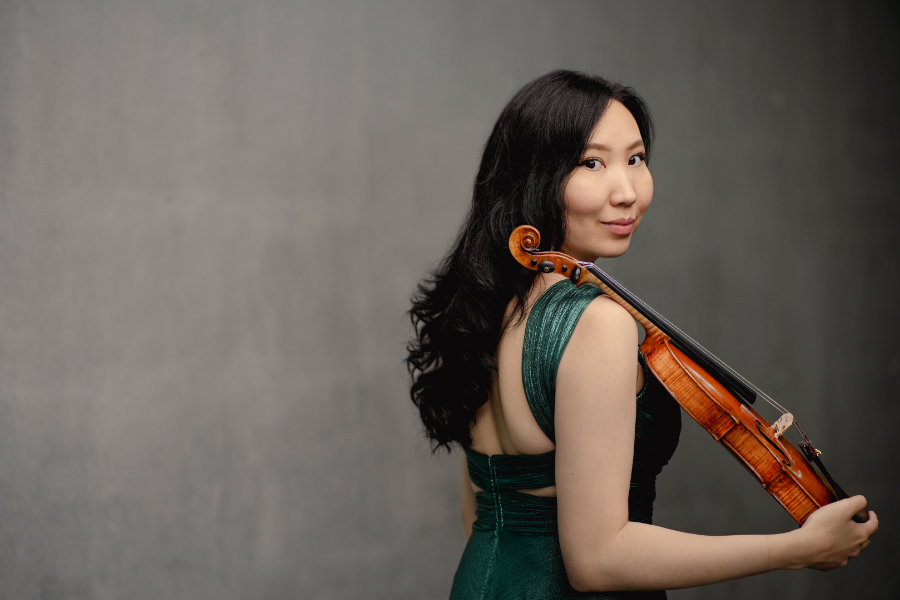A superb violinist, Meruert Karmenova, winner of the second prize at the last International Henryk Wieniawski Violin Competition in Poznań, will present a repertoire consisting of Romantic works and pieces from the beginning of the 20th century. We will hear a piece by Wieniawski, which brought her the greatest fame, as well as a sonata by Edvard Grieg and compositions by Karol Szymanowski and Eugène Ysaÿe. She will be accompanied by the pianist Michał Francuz.
Henryk Wieniawski’s impressive and popular Polonaise in D major was written in 1849, when the composer was only fourteen. This short work was inspired by Karol Lipiński, whom the young virtuoso and composition student met a year earlier. Irena Poniatowska, a researcher of music from the Romantic era, wrote about the piece: “Here, Wieniawski showed creative independence and maturity, and at the same time captured a national feature of the polonaise – full of heroic spirit and full of panache, saturated with virtuosity, rich in contrasts and dramatic moments.” Also, the Violin Sonata No. 2 in G major op. 13 by Edvard Grieg is an early work inspired by the melodies of Grieg’s native country. The Norwegian wrote it in 1867 and dedicated it to the violinist Johan Svendsen. Yet not everyone liked the direction the young Grieg took in his work. His teacher, the Dane Niels Gade, said that the work was “too Norwegian,” to which the outraged composer replied that the next sonata would be even more Norwegian! Today, of course, Sonata No. 2 in G major no longer arouses such controversy and has delighted generations of listeners with its richness of melodic inventiveness.
Myths by Karol Szymanowski is the music of a composer searching for new means of expression, a brave and radical experimenter crossing new boundaries. His expressive palette is extremely rich here: the violin sometimes plays sul ponticello, i.e. at the bridge, which gives a sharp and bright sound, there are long-held shimmering trills and tremolos, ethereal harmonics and sensual glissandos. Szymanowski was fully aware of the value of Myths; he wrote about them as follows: “my favorite pieces, sonically and technically very original, and at the same time good music,” and described the third movement as “a musical expression of the dreamy anxiety of a summer night”. The concert will conclude with the Poème élégiaque op. 12, the work by the Belgian composer and virtuoso Eugène Ysaÿe, in his time called the “king of the violin”. The artist, according to his own commentary, found his voice in this work. The inspiration for this dramatic and expressive piece was Shakespeare’s tragedy Romeo and Juliet.

